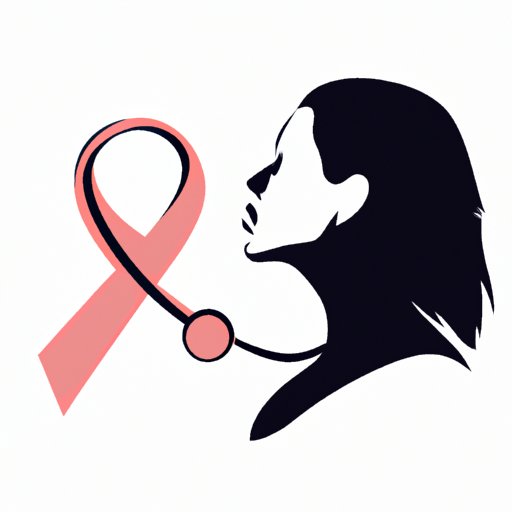
I. Introduction
Breast cancer is a disease that affects both men and women, but women are more likely to develop it. It is a type of cancer that starts in breast tissue and can spread to other areas of the body if not detected early. In this article, we will explore nine ways to prevent breast cancer. Our aim is to provide you with the necessary information to live a healthy lifestyle and maintain your breast health.
II. Establish a Healthy Lifestyle
Living a healthy lifestyle means taking care of your body in many different ways. It includes eating a healthy diet, getting regular exercise, and avoiding unhealthy habits like drinking alcohol and smoking.
Eating a diet rich in fruits, vegetables, whole grains, and lean protein can reduce the risk of developing breast cancer. Additionally, avoiding alcohol and smoking can also help reduce the risk. Engaging in regular physical activity, such as taking a brisk daily walk or attending a fitness class, can also reduce the risk of breast cancer. In fact, women who exercise for at least 30 minutes every day can reduce their risk of breast cancer by up to 10-20 percent.
III. Regular Check-ups and Self-Exams
It is very important to conduct a monthly self-breast examination and schedule regular check-ups with your doctor. Early detection of breast cancer is key to successful treatment. Women who find lumps or other changes in their breasts during self-exams or during regular check-ups with their doctor can have a better chance of successful treatment.
Women aged 40 and above should schedule regular mammograms once a year or as advised by their doctor. This is particularly important for women with a family history of breast cancer.
IV. Breastfeeding
One of the benefits of breastfeeding is a reduced risk of breast cancer. Studies have shown that women who breastfeed their babies for at least six months can reduce their risk of developing breast cancer by up to 10 percent. Breastfeeding lowers the amount of estrogen in a woman’s body, which is a hormone that can cause breast cancer.
V. Reduce Stress Levels
Stress can have a negative impact on health, and it can also increase the risk of developing breast cancer. Managing stress is essential for overall health and wellbeing, and it can help lower the risk of breast cancer.
Engaging in stress-reducing activities like yoga, meditation, and exercise can help manage stress. Yoga and meditation, in particular, have been shown to lower stress hormone levels and increase feelings of calm and relaxation. Exercise has also been shown to reduce stress levels and promote overall health.
VI. Maintain a Healthy Weight
Obesity is a significant risk factor for breast cancer, especially in postmenopausal women. A healthy weight is important for overall health and wellbeing, and it can also help lower the risk of breast cancer.
Eating a plant-based diet with fresh fruits and vegetables can help maintain a healthy weight. Additionally, engaging in regular physical activity can help reduce the risk of obesity and promote overall health. Women who are overweight should talk to their doctor about the best ways to lose weight and maintain a healthy weight.
VII. Reduce Exposure to Environmental Toxins
Environmental toxins like chemicals, pesticides, and pollution can increase the risk of breast cancer. Women can reduce their exposure to toxins by buying organic produce, using natural cleaning products, and avoiding contact with harmful chemicals.
Exposure to radiation, especially during medical imaging tests like CT scans and X-rays, can also increase the risk of breast cancer. Women should discuss the risks and benefits of these tests with their doctor before undergoing such procedures.
VIII. Genetic Testing
Genetic testing can benefit women with a family history of breast cancer. Genetic testing can detect the presence of inherited mutations in genes that can increase the risk of breast cancer, like BRCA1 and BRCA2.
Women who test positive for these mutations can discuss their options for preventive measures with their doctor. Preventive measures may include more frequent mammograms, taking medication to reduce the risk of breast cancer, or, in some cases, having prophylactic surgery to remove the breasts. Early detection and preventive measures can help reduce the risk of developing breast cancer.
IX. Conclusion
Preventing breast cancer is possible by establishing a healthy lifestyle, performing regular self-exams, getting regular mammograms, breastfeeding, reducing stress levels, maintaining a healthy weight, reducing exposure to toxins, and getting genetic testing if applicable. This comprehensive guide can help women reduce the risk of developing breast cancer and improve their overall health. Women should take action and follow through with preventive measures to maintain the health of their breasts.





